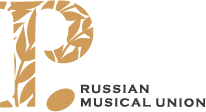Text: Vitaly Lesnichy
Amid the noisy ball
Friday, 10 am, World Trade Center, overcrowded Ladoga conference hall, grand opening. Briefly, succinctly, completely, theater and cinema artist Maxim Linnikov announces the start of the symposium. The presenter reserves the right to long words and long speeches to the professionals of the recording industry. However, the business intonation does not escape the conviviality of the mood. Among the participants, together with sound engineers, the highest teaching staff of the country’s leading universities – professors, candidates and doctors of sciences, teachers of the VGIK, the Moscow Conservatory, the Gnesins Russian Academy of Music, the Moscow State Institute of Culture, the Russian Institute of Theater Arts, the Institute of Contemporary Art.
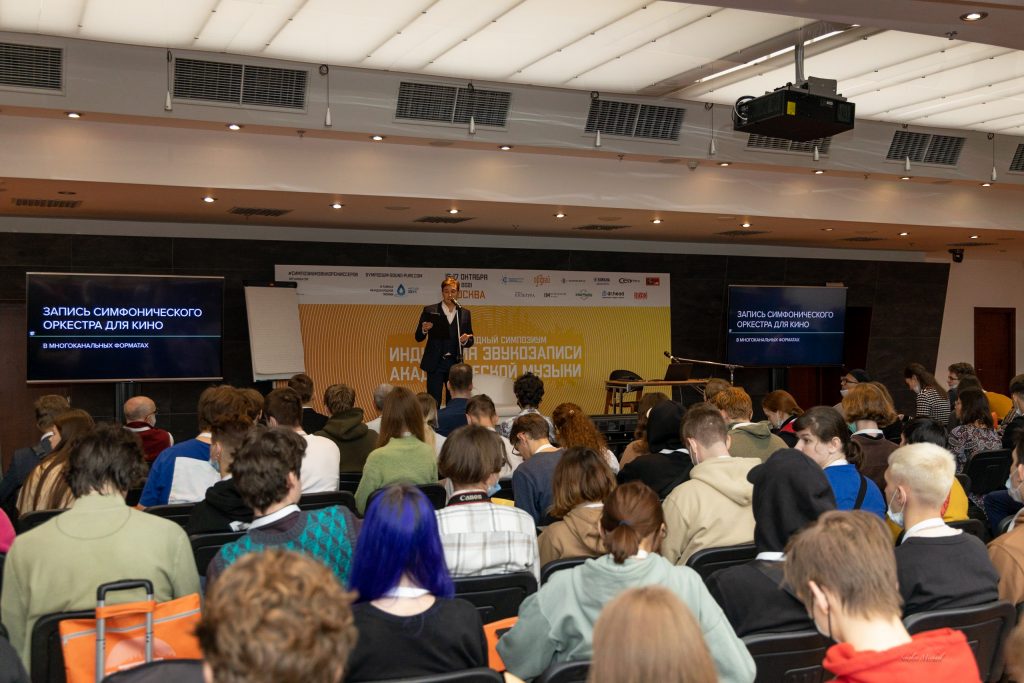
Together with them, authors and performers, copyright holders, lawyers, manufacturers of specialized equipment, musicologists, producers, managers of recording studios, students and young professionals participate in the symposium. A total of 400 people, including guests from abroad. They met for the first time in two years since the first symposium in 2019. Nobody hides their interest and joy in the event. The chairman of the Guild of Sound Engineers of the RMS, professor of VGIK, the Moscow Conservatory, the Institute of Contemporary Art Maria Soboleva goes up to the stage and congratulates on the beginning of work:
– We rarely communicate because our workplaces are very individualized. The Russian Musical Union gave us a holiday. Be free to learn new things and feel free to ask questions.
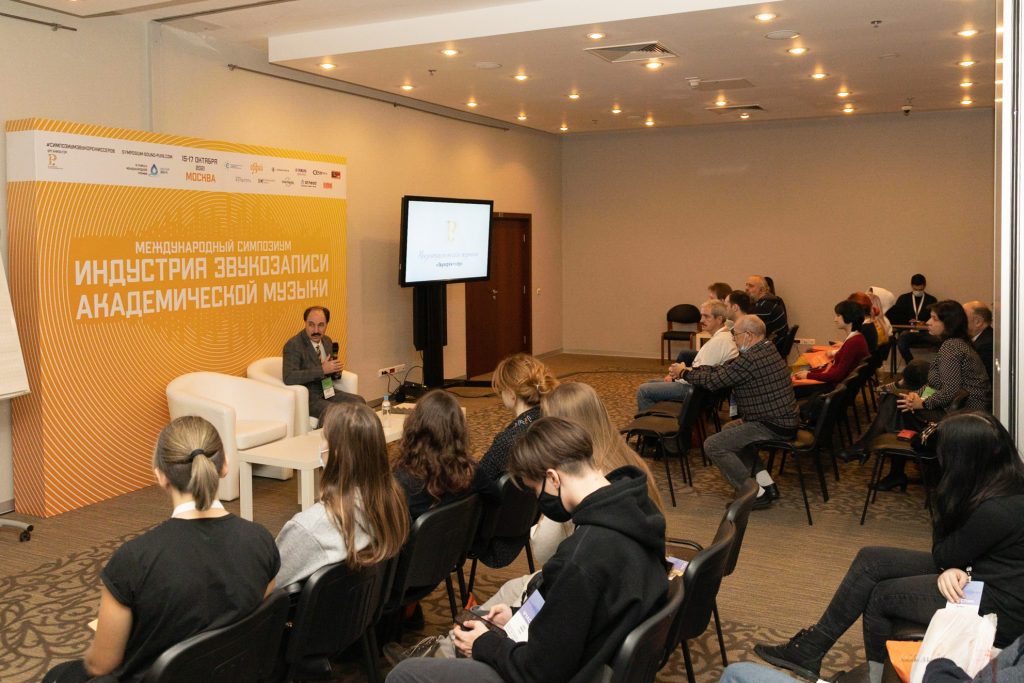
For the next three days of the symposium, Maria Soboleva is in the thick of things – holds meetings, engages in dialogues, enters into discussions, raises questions, talks about problems, sums up the results. An active teacher, author of numerous publications and training programs on sound engineering, knows his workshop from the inside. She collaborates with the State Academic Symphony Orchestra named after E.F. Svetlanov, the Moscow Symphony Orchestra, the Moscow Synodal Choir and the Sretensky Monastery Choir, the State Quartet. Borodin … She worked with Michel Legrand, Vladimir Ashkenazi, Vyacheslav Artyomov, Leonid Desyatnikov, Alexey Kozlov, Igor Butman, Tamara Gverdtsiteli and other famous artists and composers: & nbsp;
– Today, almost 90% of music is recorded. And more and more music content will be associated with sound recording. The role of a sound engineer is difficult to underestimate. It is through his ears that the listener perceives the music that composers write and performers play, – the sound engineer draws attention to the importance of his profession. & Nbsp;
By Swiss watch
From the first hour, the symposium showed its relevance and relevance. Leading sound engineer for music recording at the Mosfilm studio, Andrei Levin, with his lecture “Recording a Symphony Orchestra for Cinema in Multichannel Formats” opens a series of master classes and lectures, starting with an excursion into the history of the evolution of sound transmission in cinema.
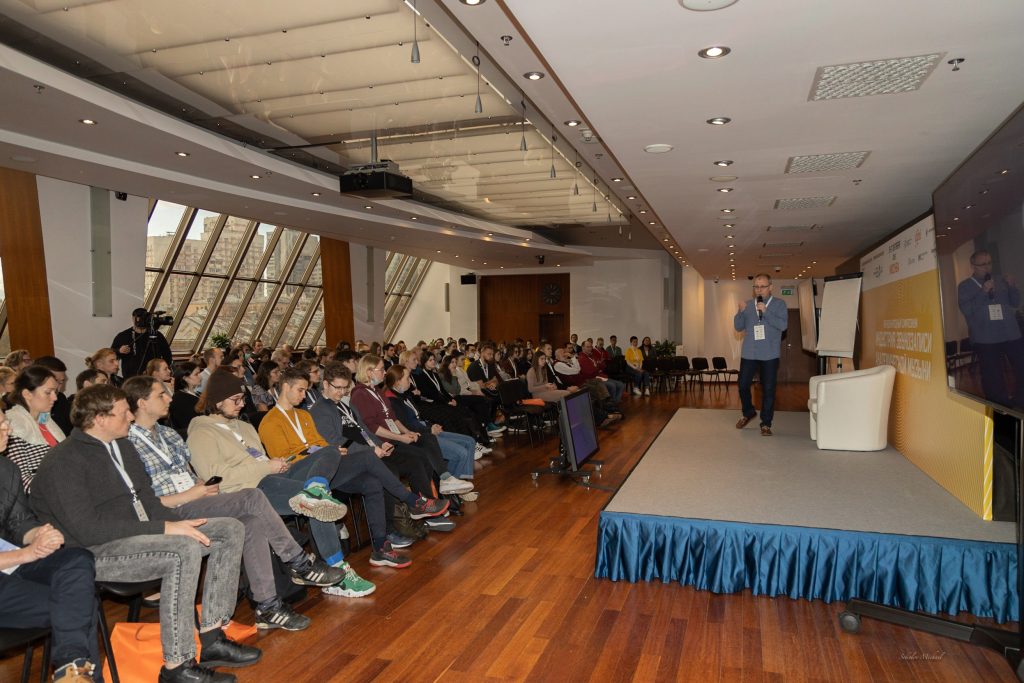
Each day’s program includes lectures, master classes, discussions, conferences, public hearings and round table discussions, with minimum 5-minute breaks. Professionals of mastering, mixing and visualization, cleaning, extraction, sound filtering have come together to gain invaluable experience, share information, establish contacts and connections, and move the industry forward. Activities follow one after another in parallel blocks. Each ends, like in a theater, with applause and applause.
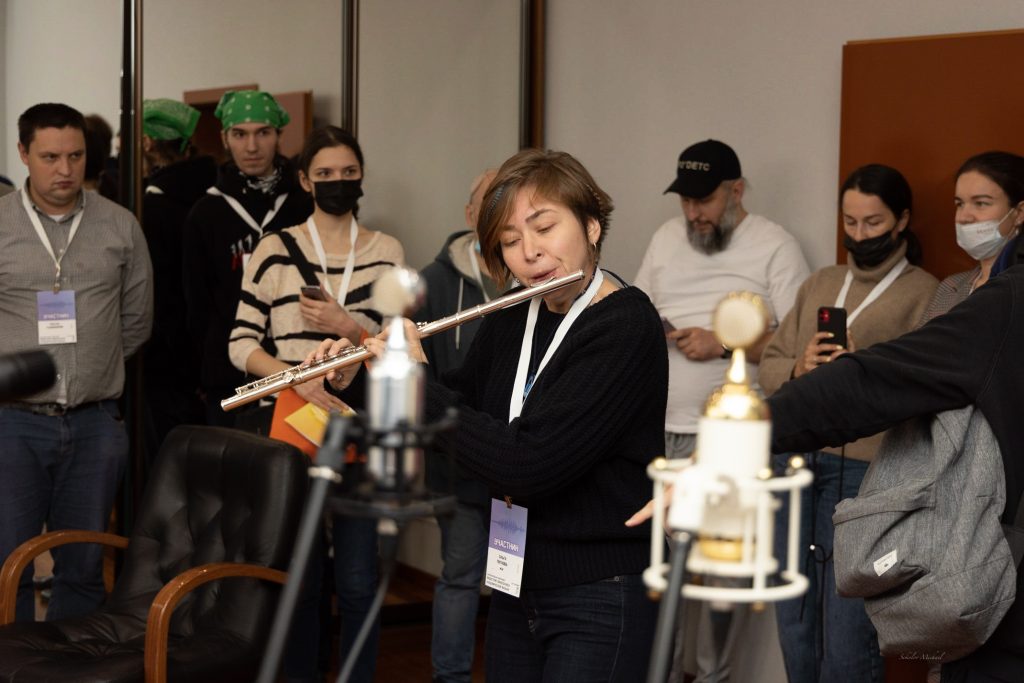
On the first day, professional education in the field of sound engineering is discussed at the round table. The controversy involves teachers not only from the higher school, but also from the specialized secondary school – the Moscow Secondary Special Music School (College) named after V.I. Gnessin, College of Entrepreneurship №11. Even the parents of the students are present in the hall. Maria Soboleva speaks about the main thing – what a graduate should be like so that producers do not have to “finish teaching” him later. There are many ideas, proposals, points of view, but there is not enough time for both the speakers and those present in the hall. The lecture “Development of a personal gaze” is delivered by recording guru Erdo Groot – director, producer, sound engineer of the recording company Polyhymnia International, who flew in from Holland despite the complexities of the pandemic. An hour and a half in one breath. The listeners brilliantly cope with the language barrier with the help of headphones and simultaneous translation. The organizers thought through everything to the smallest detail: accompaniment, seating, technical equipment, programs, manuals, booklets. The internal mechanism of the symposium works like a pendulum of a Swiss clock – without hesitation, stops, delays. In addition to the foreign guest, the program was also continued by performances by no less eminent Russian masters. The leading sound engineer of the Moscow Conservatory Mikhail Spassky shared his experience of concert recording, the leading sound engineer of CineLab Yakov Zakhvatkin gave a course on vinyl mastering, and the head of the Unvis-Pro Group, engineer-physicist Alexander Lurie revealed the topic “FIR filters and their role in the world revolution”. On the same day, the presentation of the magazine “Sound engineer”, revived by the Russian Musical Union, took place. An exhibition of sound equipment was held in the showroom, where it was possible to get acquainted with the equipment of the companies Neumann, Yamaha, Simple Way, Dr.Head, Oktava, NikFi, Soyuz, Nevaton and Unvis-Pro. At the end of the day, the head of the legal department of RMC Ksenia Miryasova and the leading lawyer of the Russian Authors’ Society Evgenia Sulla, impartially and clearly told the authors about their rights in the recording industry. Despite the late hour, after the end of the first working day of the symposium, conversations, discussions, polemics were heard in the corridors for a long time. Nobody wanted to leave. The minutes that have passed into hours are not wasted or wasted.
Behind the Scenes Tour
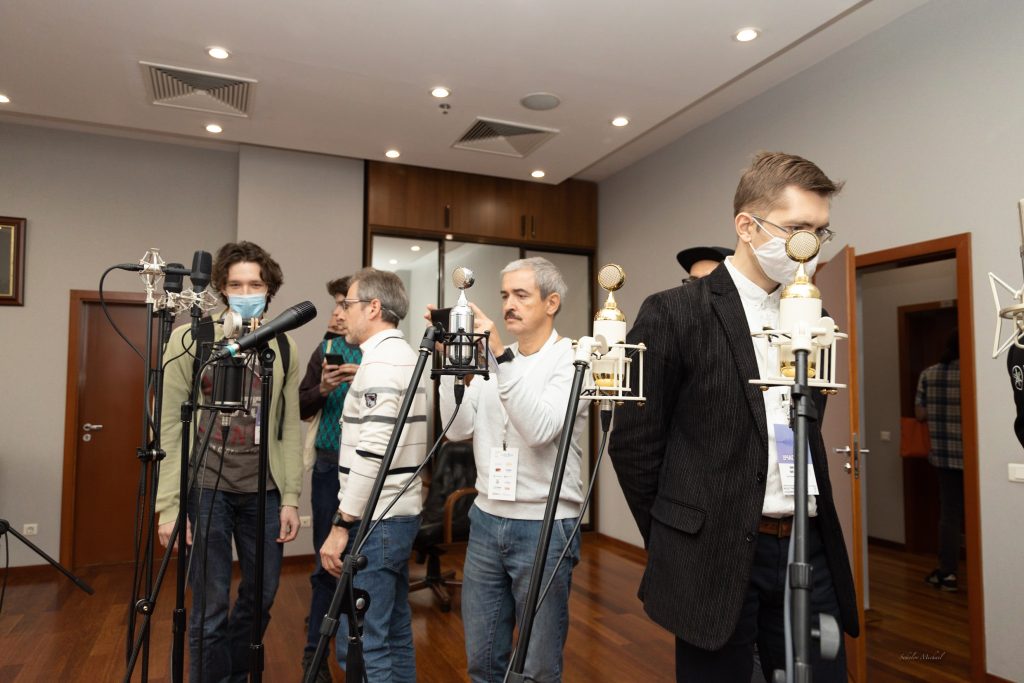
On the second day, the Mosfilm and CineLab film studios, as well as the largest stages of academic music – the Bolshoi Theater, Helikon-Opera, Novaya Opera, Stanislavsky Electrotheatre, and the Moscow Conservatory opened their doors to the symposium participants. For those who wish, we conducted fascinating technical tours behind the scenes of theaters. The most experienced professionals revealed the secrets of technical equipment, stage and staging action, demonstrated the principles of operation of acoustic and sound recording systems, talked about interaction with directors, choreographers, set designers, performers during the dubbing of the performance. In parallel with the technical tours, a series of master classes were held at the Gnessin Russian Academy of Music and the Moscow Conservatory. Erdo Groot continued the dialogue with the participants at his lecture On Approaches to Recording Projects, and Honored Artist of Russia, sound engineer, head of the recording service of the Moscow Philharmonic Society Pavel Lavrenenkov shared his experience of interacting with musicians when creating unique recordings.
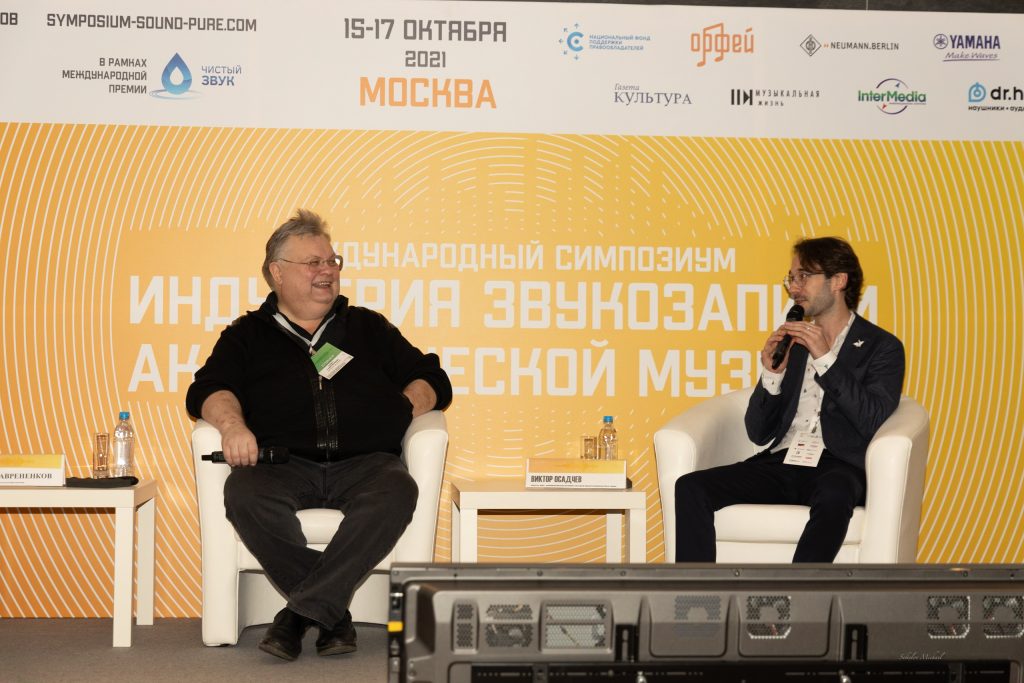
On the third day, the symposium participants continued to consider the issues of interaction in the chain “author-performer-sound engineer-listener”. & nbsp;
– Take Berg’s Violin Concerto or Bach’s Violin Concertos … The mass of music written by composers whose work is pointless to discuss sounds better in the recording. Even the greatest composers for me, Richard Strauss and Mr. Wagner, also sound better in recording, ”says composer Mikhail Bronner of the breakthrough in sound engineering, who wrote the operas The Ugly Duckling and Golden Island for the Natalya Sats Children’s Musical Theater, and for the Moscow Musical Theater them. Stanislavsky and Nemirovich-Danchenko’s ballets Optimistic Tragedy and The Taming of the Shrew. Dozens of his works are performed in Europe, USA, Canada: & nbsp;
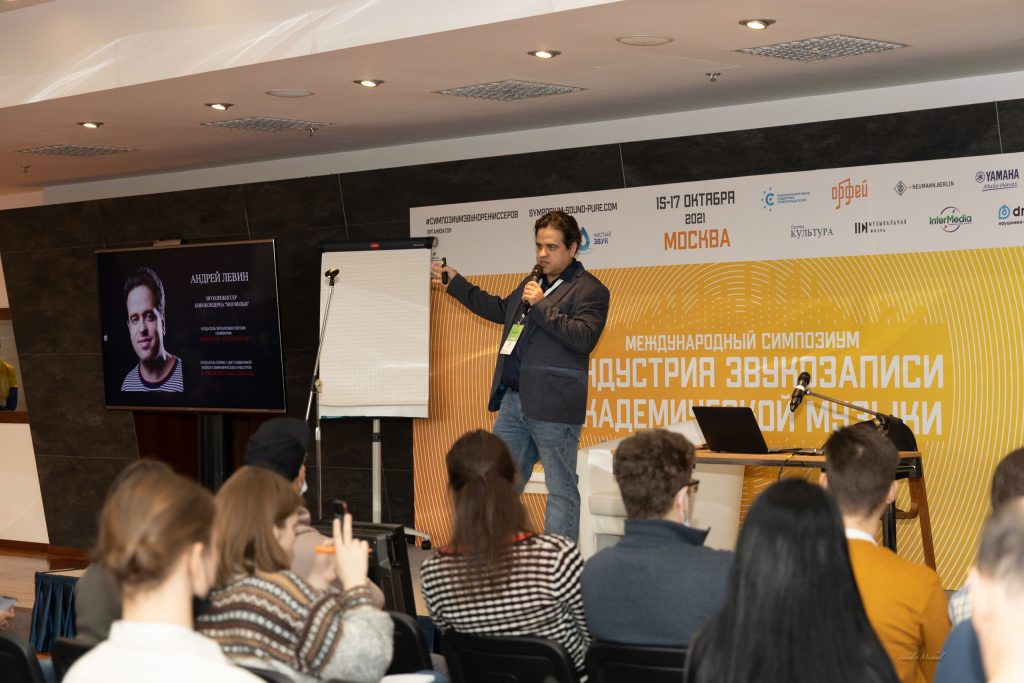
– It seems to me that music acts through a musical image. The question is whether he cares or not. A good composer has created a musical image that excites, and not a very good one has not. But the musical image is not verbally explained by our words. We need a performer and a sound engineer: in this line of people who are engaged in creating a product, everyone is important, – says the author at public readings (Public talk) “Sound engineer and composer”. Famous composers Kirill Umansky, Igor Stetsyuk, Alexey Amusin are at the same table with him. & Nbsp;
– The sound engineer must always be in the same plane with the composer. If he does not understand this music, does not feel it, does not like it, interaction will not work, – Andrey Levin “joins in” in the dispute. All composers here know him. – If sound engineering in the conservatory is more actively taught to composers, a person could at some level do something to the end himself, without involving anyone. & Nbsp;
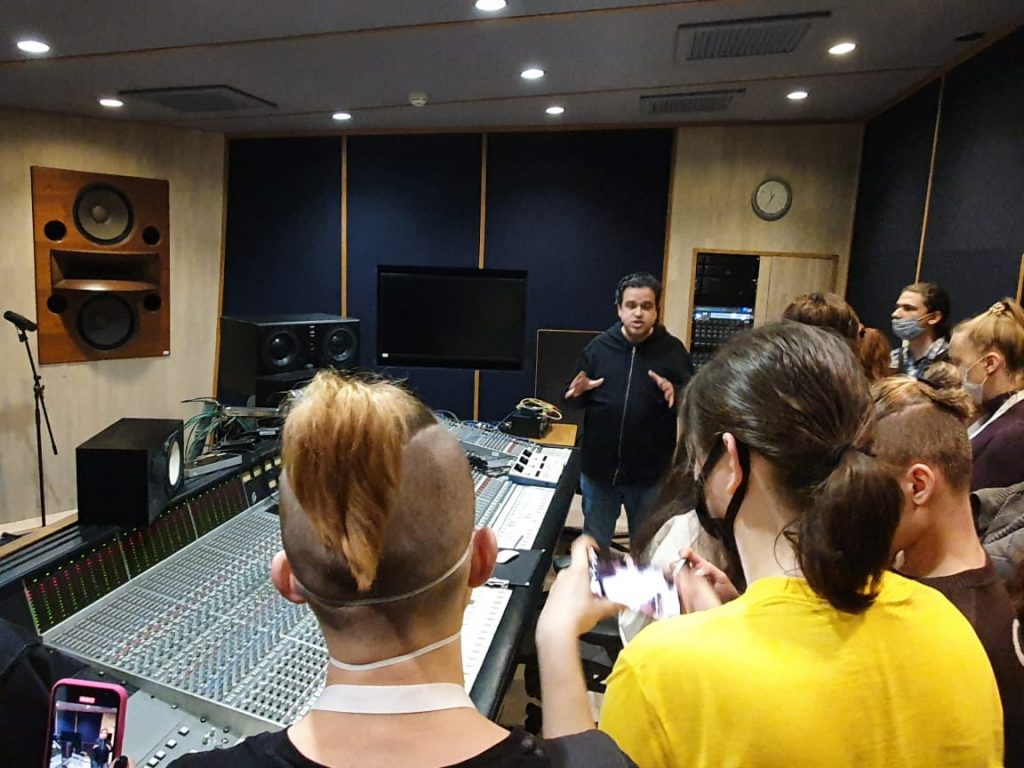
Composer Alexei Amusin supports sound engineer:
– I am a composer and sound engineer rolled into one, – says the author of the younger generation. – I have no way to record an orchestra. I have to do everything on the computer. I have an exact image and no middleman. I will not explain to a person: here are the violins, and the double basses need to add compression. & Nbsp;
– What about the timbre of a real live orchestra and an electronic orchestra? – ask a question from the audience. & Nbsp;
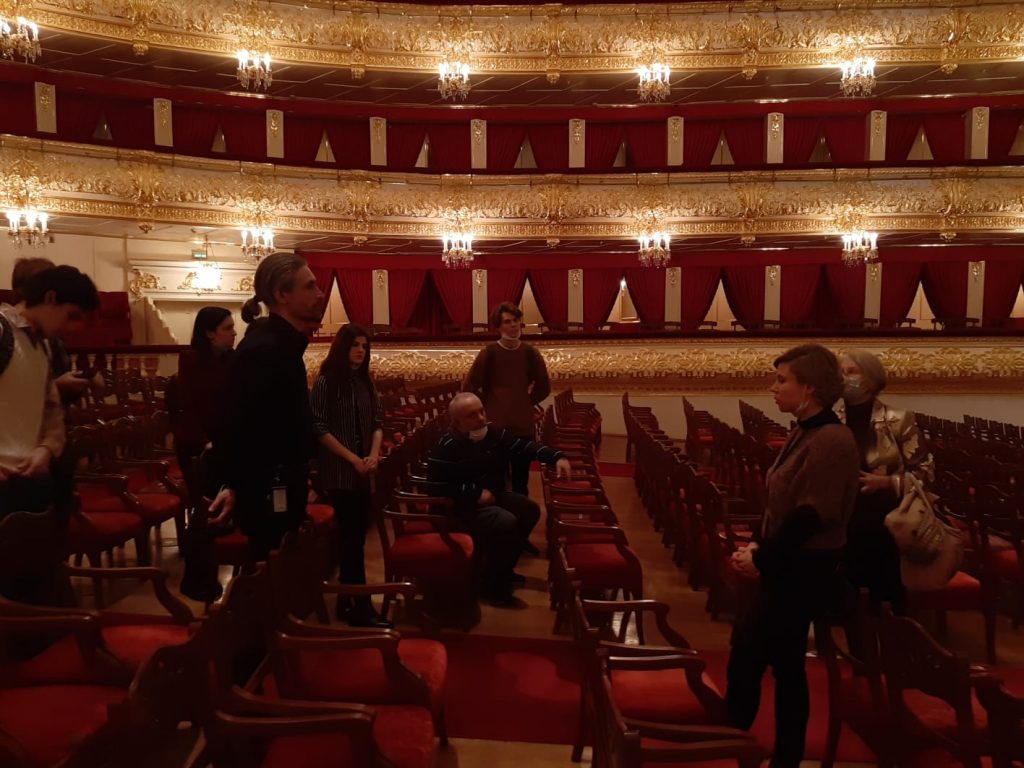
– My friend at Mosfilm wrote the strings for the film Unforgiven. We made two versions – recorded with a live orchestra and programmed on a computer. And I said: let’s leave what we programmed.
The moderator of the meeting, Maria Soboleva, as a navigator, takes the ship out of the storm:
– For the composer, when he recorded the pilot track, it is sometimes difficult to accept the true, real sound of the orchestra. Because while he was composing, he was already accustomed to the sound of electronic instruments. And his inner aesthetics lacks a natural, vivid picture: when musicians start playing out of tune, which is characteristic of living people, it suddenly turns out to be unfriendly to the composer.
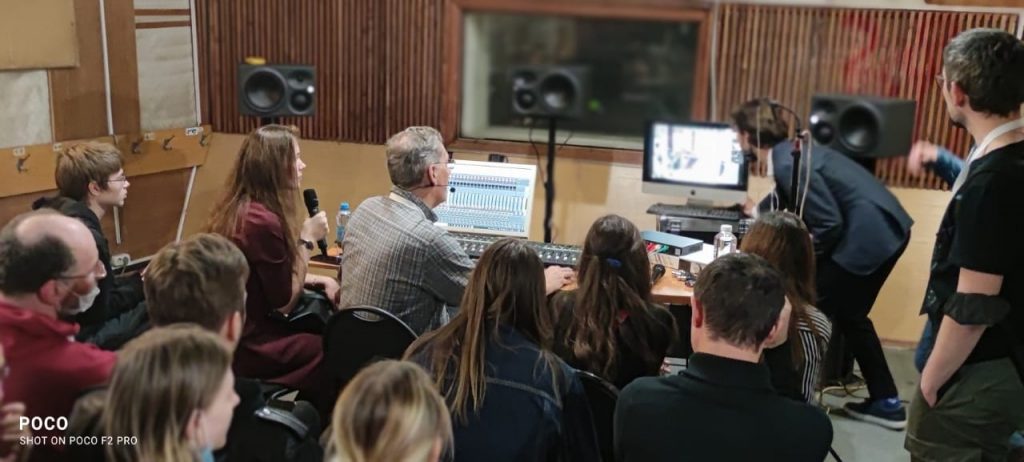
– Aren’t you afraid the time will come when the demo will change the aesthetic? – a question from the audience sounds again. & Nbsp;
The answer is given in the same place:
– I see how Eduard Nikolaevich Artemiev evolved at his already very respectable age, who told me twenty years ago: an orchestra is a part of a synthesizer. And now, having gone through all the circles of the development of electronic music, he assures me: I need a hundred living human souls to play music … Living is better! & Nbsp;
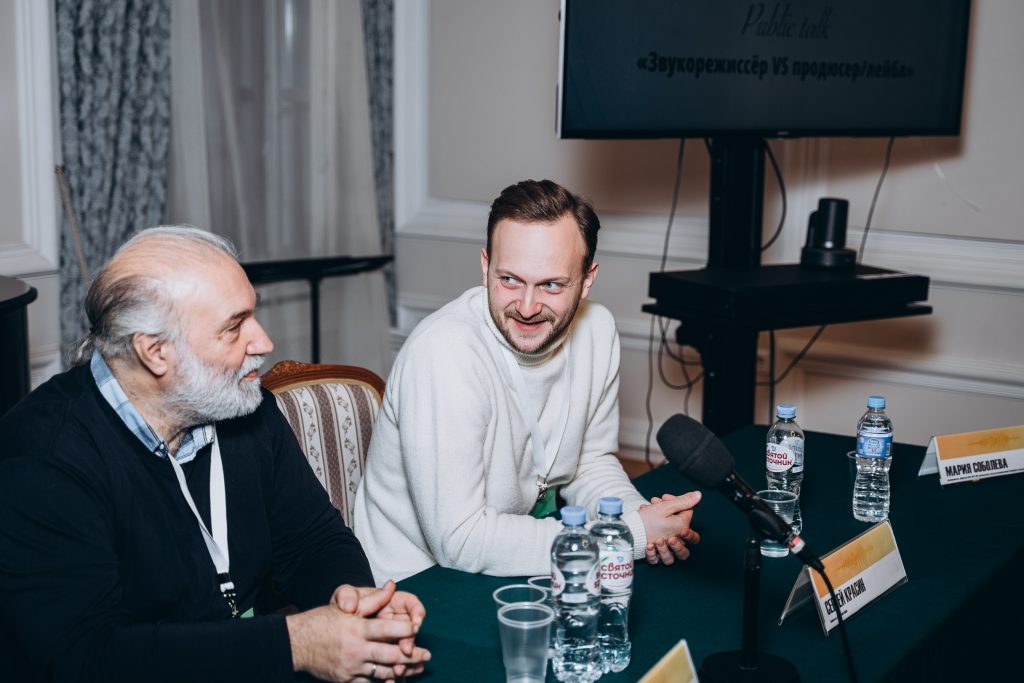
Of course, it’s very hard to believe that artificial intelligence will not completely absorb live sound, but many still have doubts about this. & nbsp;
Arcane Wizards
At the scientific-practical conference “Sound engineering – the profession of the future”, a guest from Belarus Vadim Kiranov devotes the audience to the intricacies of sound recording of bell ringing, and the sound engineer of the Orthodox TV company “Soyuz” Denis Yelagin shares the peculiarities of television shooting of concerts in the conditions of a studio-equipment complex. Theatrical sound engineers Andrei Borisov and Ekaterina Sedykh talk about the specifics of working in modern drama and musical theater. Wizards point out the benefits of QLab software for multimedia shows. Alexei Chudinov, Head of the Sound Engineering Department of the Moscow State Institute of Cinematography, raises the issues of modular training, distance education, and specialization within the current educational standards. His colleague from the Russian State Specialized Academy of Arts Karina Kovalenko talks about the difficulties and prospects of inclusive education. Vitaly Lobkov, a 5th year student at MGIK, gave vivid examples of the unsuccessful use of classical music in advertising in his speech. In particular, in his opinion, the theme “Invasion” from the Seventh Symphony by Dmitry Shostakovich at the opening of an agricultural holding in the countryside or Bach’s Toccata and Fugue in D minor sounds inappropriate in a video on fire safety. What can we say about Mozart’s Turkish March, which “untwisted” the consumer on TV to buy a Korean car, or about Edward Grieg, encouraging his suite “In the Cave of the Mountain King” to love Gazprom with all his heart. The classics do not fade here either! But the young speaker invites sound engineers and producers to turn to numerous libraries where music is structured according to themes “related not only to the content of the music, but also to the possible context of its sound.” In general, students answer with no less interesting themes of their performances and find out how modern popular music is reduced to the maximum simplicity of three notes, which, by copying, “wander” from one composition to another. Does it make sense to compare pop music with classical music? Is it worth studying at all?
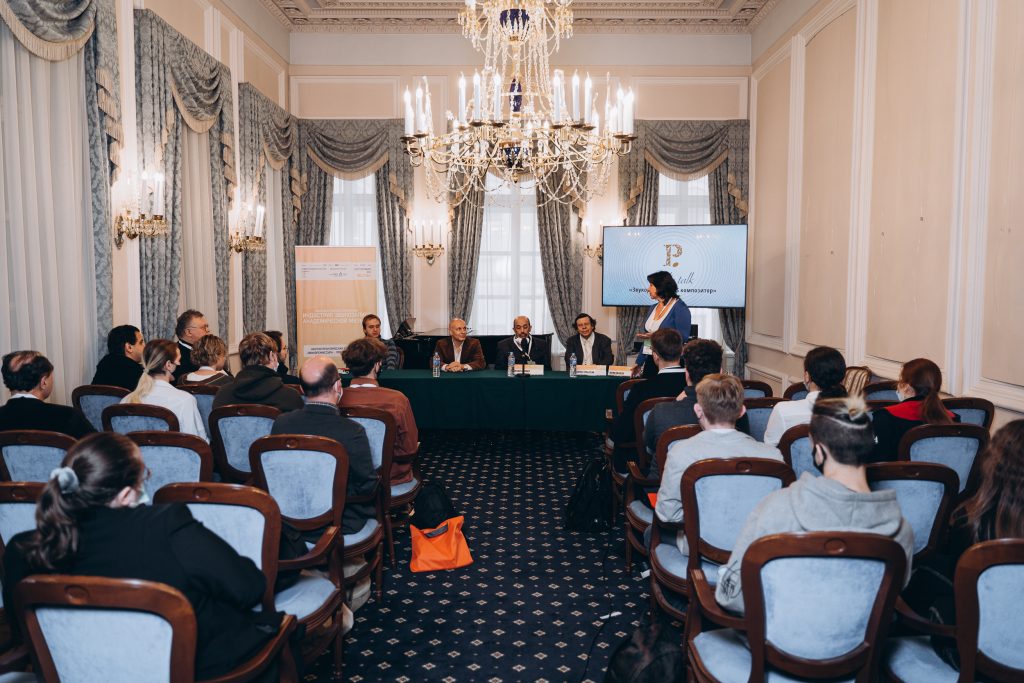
A sound engineer who works with all musical directions needs to know both pop music and classics, – says Olga Pashinina, music editor, Ph.D. – And the most important thing is to be able to convey the meaning of both, competently using all the styles of each of the directions when sounding performances and theatrical programs.
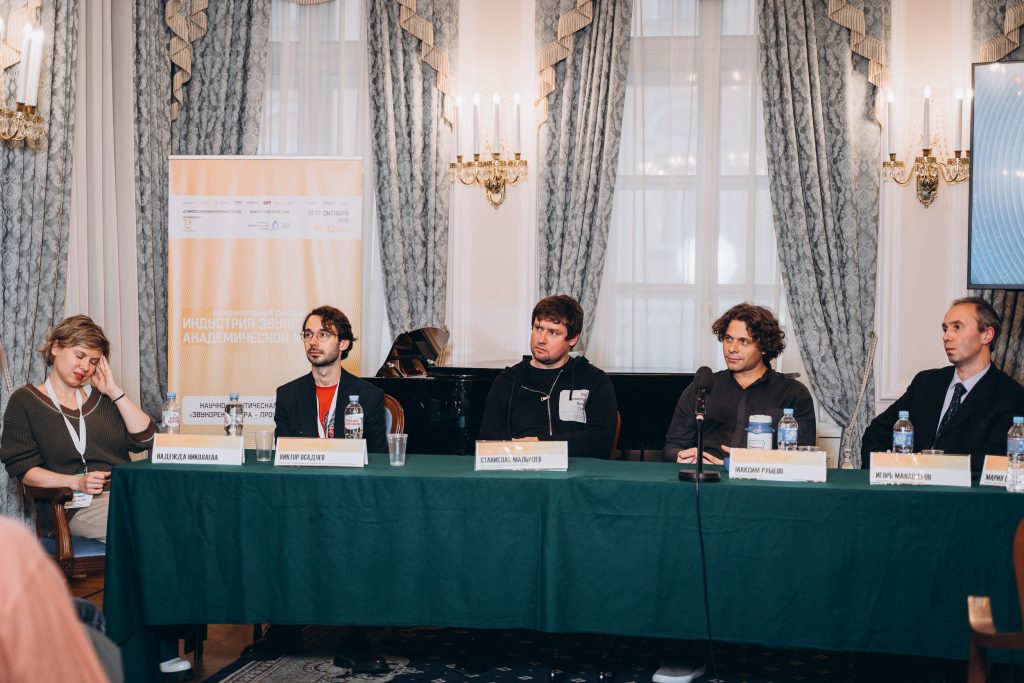
On Sunday, the corridors on Bolshaya Nikitskaya are no less lively than at student pairs and seminars. The halls are filled with light ease, democracy, freedom of thought, unencumbered by conservative views, the weight of the spoken words. The scientific and practical conference is replaced by the presentation of the book. Composer and concert pianist, professor at Sakuyo University of Japan Artyom Agazhanov presents his development – the training course “Music. Theory and practice”. In addition to the textbook, it contains 17 applications, 20 illustrated posters. Of course, the point is not in quantity, but in the teaching method itself, which allows you to master in the shortest possible time what many, as they say, do not have enough life for.
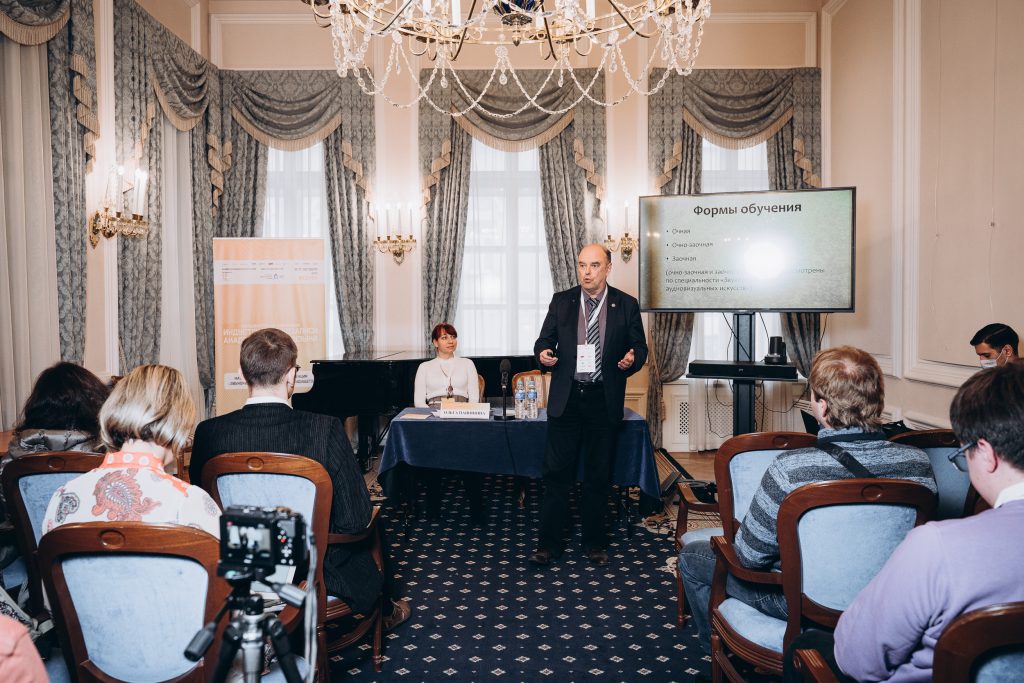
– I’ve been writing this tutorial all my life. The main goal is to provide a complete system of music education. It should cover all aspects of expressiveness and at the same time be uplifting, – the teacher and pianist comments. & Nbsp;
And in the opposite wing of the building, a parallel cycle of lectures and master classes on electroacoustic music is being held. In the finale – a concert by the Center for Electroacoustic Music of the Moscow Conservatory. On the stage there are classics and modernity, luminaries of art and aspiring performers of contemporary music Sergei Poltavsky, Alexei Potapov, Yulia Migunova, Stanislav Makovsky … Behind each speaker, the magician of magic sound, imperceptible to the audience, is a sound engineer who presents both the author’s vision and the performing interpretation. And the success of the work depends on how he copes with this task. Or failure. All participants in one process are looped back. The symposium taught everyone this.

October 15 Grand opening 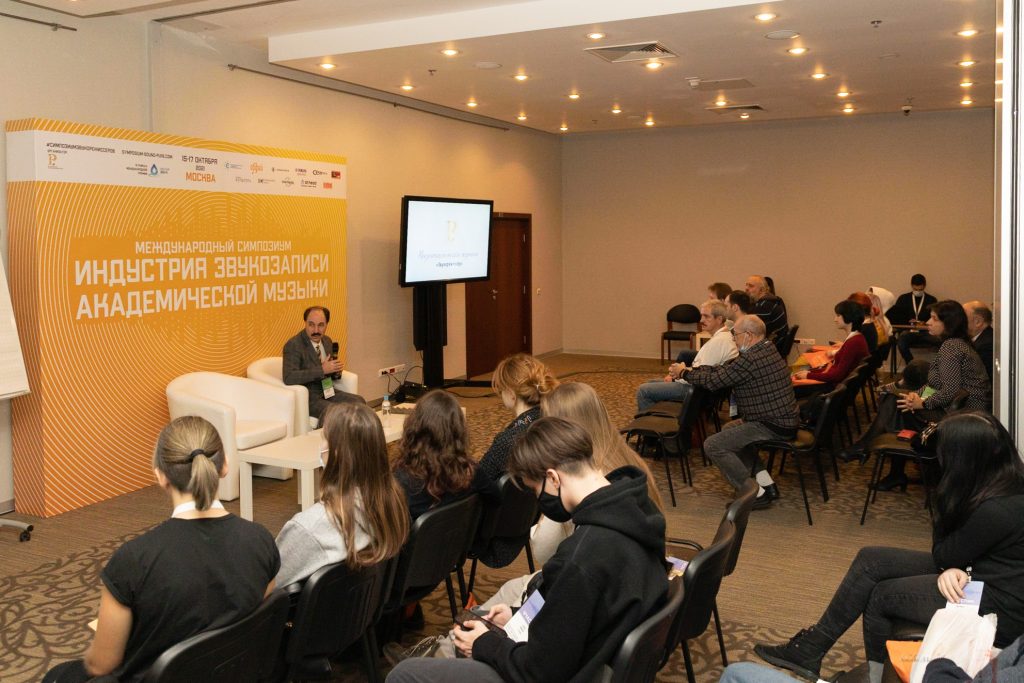
October 15 Presentation of the Sound Engineer magazine 
October 15 Lecture by Mikhail Spassky 
October 15 Exhibition of Sound Equipment 
October 15 Exhibition of Sound Equipment 
October 15 Q&A Pavel Lavrenenkov and Viktor Osadchev 
October 15 Lecture by Andrey Levin 
October 16 Technical tour to Mosfilm 
October 16 Technical tour to the Bolshoi Theater 
October 16 Erdo Groot’s master class in Gnesinka 
October 17 Public talk Sound engineer and producer 
October 17 Public talk Sound engineer and composer 
October 17 Public talk Sound engineer and performer 
October 17 Scientific and practical conference Sound engineering is the profession of the future 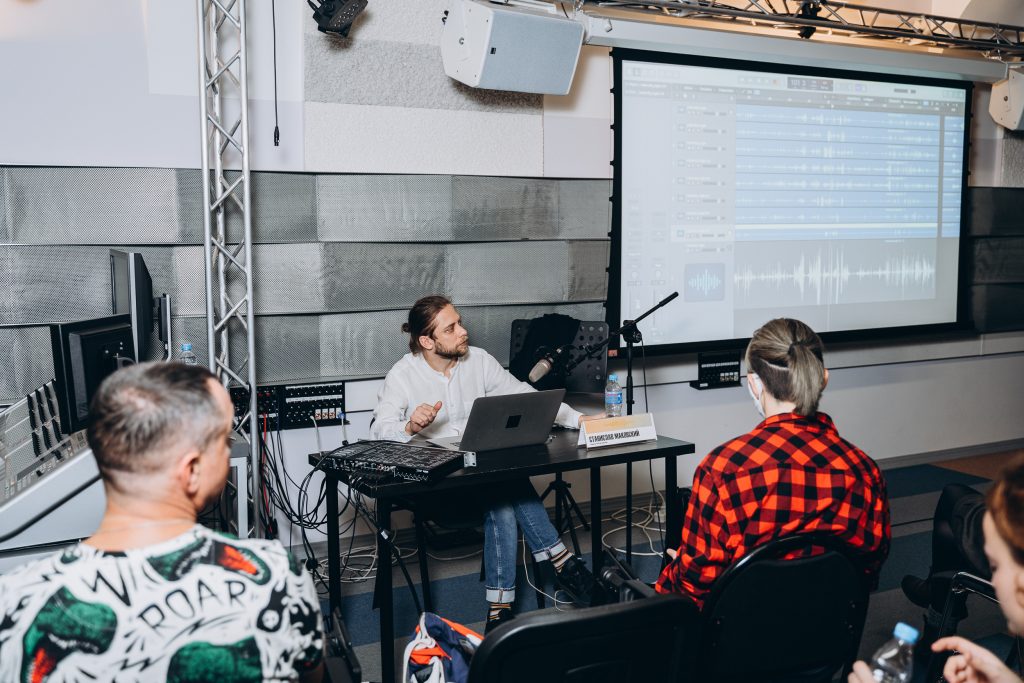
October 17 Lecture by Stanislav Makovsky 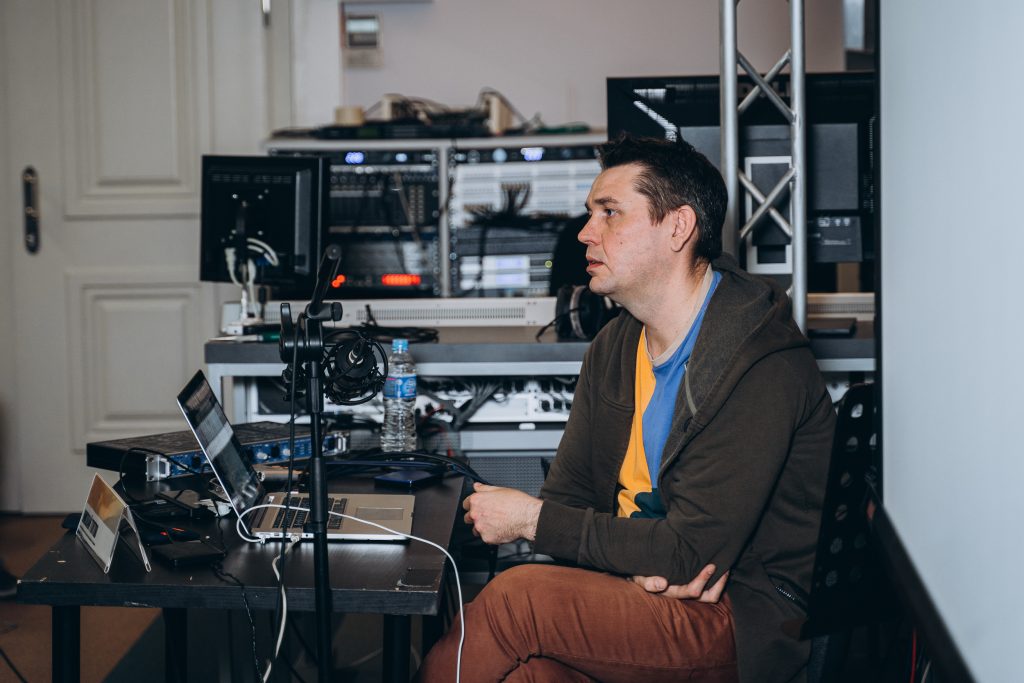
October 17 Lecture by Nikolay Popov 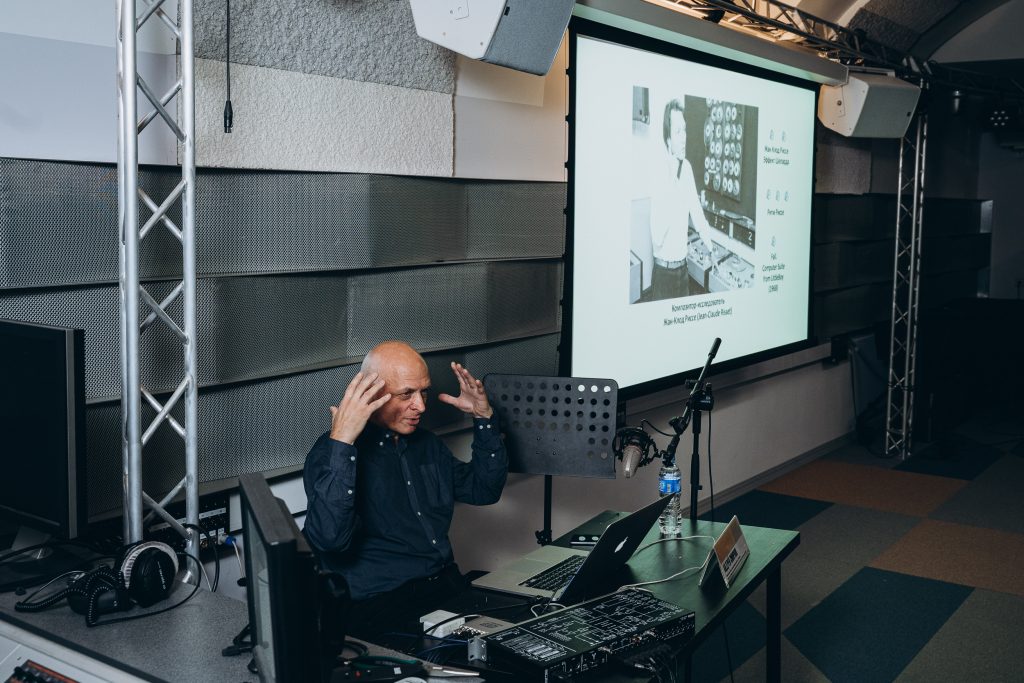
October 17 Lecture by Andrey Smirnov
